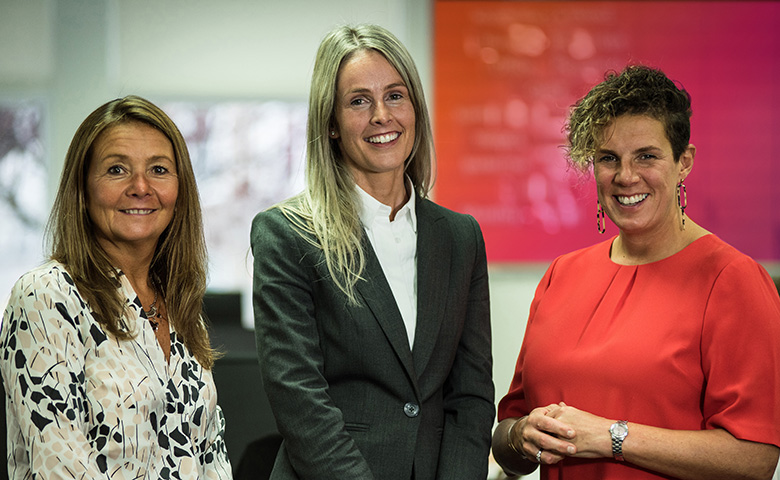Inclusion Is The Key To Successful Diversity
21st October 2019
By Amanda McCulloch
In our everyday lives, we actively pursue diversity. Unless you are a creature of intense habit you probably seek out new experiences constantly. Where you go, what you do, who you spend time with, what entertainment you watch and which foods you try. We are often energised or excited by something we've never tried before, a new experience or interesting conversation sets sparks off in our brains. It is good for us.
It is universally recognised that diversity is good for business too and it is gradually rising up the leadership agenda as the moral case resonates loudly – we should all have equal opportunity to develop, progress, be rewarded and recognised at work.
Gender pay gap reporting has highlighted the lack of diversity in management and leadership positions, but of course, diversity is defined by so much more than gender. A powerful theme that is emerging, and being readily accepted by employers, is the importance of diversity of thought.
People with different backgrounds and life experiences will think about the same problem in a myriad of different ways, approaching a solution from many different angles. So, it follows that diversity of thought is championed where there is a drive to be more innovative, competitive and successful.
For recruiters, the diversity agenda provides an exciting opportunity to tap into previously under-represented groups such as neurodivergent, mixed race or disabled people. This is particularly pertinent as the skills shortage tightens, but we are also on the cusp of a time where it is increasingly difficult to predict the job types of the future, and correspondingly, the skills requirements. This was highlighted in the OPITO UKCS Workforce Dynamics Skills Landscape report that assumed 4,500 people will be in new roles by 2025 that currently do not exist. Accessing the widest possible pool of talent to fill those roles makes business sense.
If we acknowledge that diversity is beneficial, that we actually enjoy it and benefit from it on a personal and organisational level, why is the pace of diversity change so slow in our workplaces?
Recently, the teenage climate change activist Greta Thunberg deflected criticism from a journalist about her behaviour and social skills by describing her autism as a super power. For me, Greta's defence of her differences reflects a lack of understanding, a shed-load of bias and a total lack of inclusivity.
One of the reasons why I believe change is so slow is because organisations grapple with how to create an inclusive environment and eliminate bias in the workplace. We're on a learning curve and need much more evidence-based examples of what works and that includes shining a light on good recruitment practice that improves organisational diversity and inclusion.
The CIPD research into diversity and inclusion finds many barriers exist at every stage of the employee cycle, from candidate attraction, selection, integration and development.
Unconscious bias can have a major impact on final hiring decisions. I'm not commenting from a place of judgement here. As the name infers, it is unconscious but that doesn't mean it can't be changed.
Take a moment to think about it. Do you seek out applicants who are similar to current employees because you think they will fit into the team? Does a role really require the applicant to have a first-class university degree? Do you recruit because you've found someone so relatable, placing emphasis on affinity that is in fact not relevant at all to the hiring decision?
Take your diversity and inclusion policy and put it into action during recruitment drives:
- Review job adverts for gendered and biased wording that serves to exclude people before they have even applied.
- Review how well diversity in your organisation is portrayed on marketing materials such as recruitment campaigns.
- Think creatively how jobs can be designed flexibly. Flexible working is highly desirable but it can be critical for talented people who have caring responsibilities.
- Ensure hiring managers have high levels of diversity awareness training and are provided with support to put reasonable adjustments in place where a disabled person is identified as the best applicant.
Choose people for their diverse talents and diverse thinking, the super powers that are the strengths your organisation needs, and begin to discover the benefit for your business brand, customer relationships, employee engagement and employee loyalty.
This article also appeared in the autumn edition of Business Now magazine.










